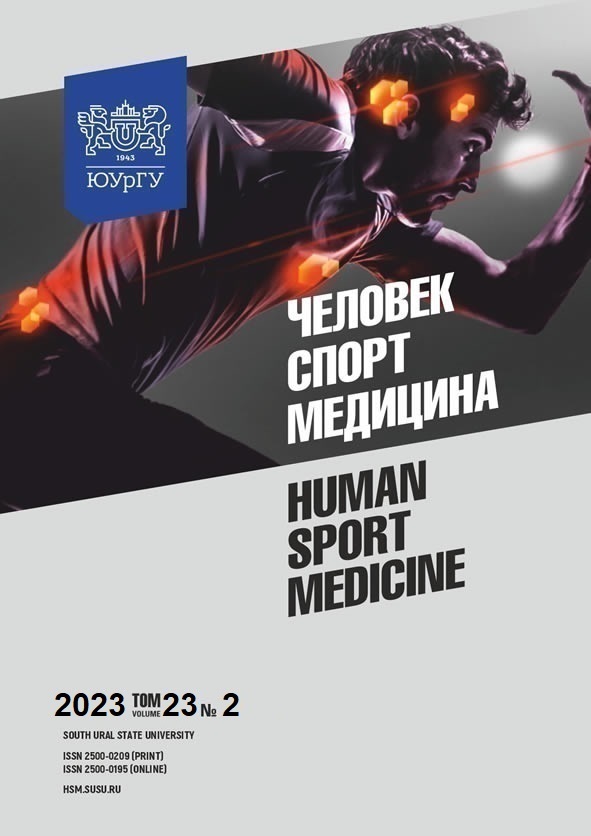PERSONAL APPROACH TO TRAINING NEEDS IN GRECO-ROMAN WRESTLERS WITH DIFFERENT LEVELS OF FUNCTIONAL FITNESS
Abstract
Aim. This paper was aimed at identifying the types of adaptation in skilled wrestlers depending on the intensity of pre-competitive and competitive training. Materials and methods. The study involved skilled Greco-Roman wrestlers in the pre-competitive season (n = 20). An analysis of the cardiovascular system, external respiration, and gas exchange was performed. The incremental load test was used to obtain the data on pedaling time, blood pressure, heart rate, threshold heart rate, VO2max, respiratory minute volume, and %O2; the Ruffier test was additionally used. Results. Training management was performed through the control program, which includes an assessment of the functional state immediately after the control bout in the early and late recovery periods. The results of the control bouts showed differences in adaptation in skilled Greco-Roman wrestlers depending on the competitive load and changes in the training program. Correlations between functional readiness and athletic performance were identified. The difference in the stability of the functional state between the winners and non-winners of competitive activities was noted. Conclusion. A comprehensive study that includes the assessment of the cardiorespiratory, central, and neuromuscular systems provides objective information about the level of functional fitness in skilled Greco-Roman wrestlers.
References
References on translit
Copyright (c) 2023 Human. Sport. Medicine

This work is licensed under a Creative Commons Attribution-NonCommercial-NoDerivatives 4.0 International License.















